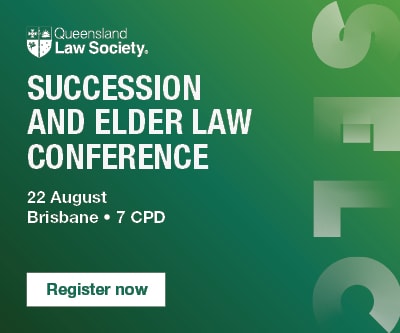As a service to members, the QLS Ethics and Practice Centre (Centre) offers Non-Binding Ethics Rulings (NBER) on disputes between Australian legal practitioners (at least one of whom is a QLS member), or their practices, over ethical matters.
Overview
To assist legal practitioners on matters of an ethical nature, the QLS Ethics Advisory Committee (Committee) may, upon request, provide a Non-Binding Ethics Ruling.
A NBER is to provide guidance to practitioners where there is a dispute between two Australian legal practitioners (at least one of whom is a QLS member), or their respective law practices, regarding an ethical issue. The process is not intended to replace guidance that may already be available to individual practitioners through the Centre or through QLS Senior Counsellors. Nor is it intended to provide rulings on ethical disputes between legal practitioners and their clients. The Committee is not a Court or Tribunal. Therefore, it is unable to provide binding rulings or determine questions of fact. Further, it is unable to provide legal advice. Rather, its role is to provide non-binding rulings in disputes between legal practitioners or legal practices on ethical questions.
Confidentiality
All inquiries to the Centre and the Committee are confidential. The deliberations of the Committee are also strictly confidential and apart from the NBER, will not be disclosed. Because they are also intended to serve an educative function, it is anticipated that the NBER will be published on the QLS Website after they have been de-identified. By agreeing to a NBER, the legal practitioners involved will consent to the NBER being published on the QLS Website after it has been appropriately de-identified.
Legal practitioners are required to provide to their clients this Factsheet which outlines our duties of confidentiality and privacy to the client.
Benefits
This service is designed to encourage a non-adversarial approach to the amicable resolution of disputes of an ethical nature, in a timely and confidential manner. While the ruling is non-binding, it nevertheless aims to reflect the contemporary views of a wide cross-section of the profession who comprise the Committee.
Application Information
All practitioners must consent in writing to the matter being referred to the Committee for a NBER.
Upon receipt of a request for a NBER, the Centre will determine whether the matter is appropriate to be referred to the Committee.
If the request is accepted, the Centre will write to the practitioners and request that they provide the following information:
- an agreed statement of facts; a statement as to what (if any) factual matters are in dispute, and what each party contends are those matters;
- a short agreed description of the nature of the dispute and the question(s) to be addressed;
- an agreed bundle of relevant supporting documentation; and
- other supporting documents (if any) that each party considers relevant to the dispute.
Supporting documentation may include relevant:
- correspondence between the parties involved;
- court orders or undertakings; and
- file notes or memoranda.
In addition to the above, each legal practitioner is entitled to provide their submissions as to what they contend to be the appropriate ethical position and the answers to the questions to be addressed.
As the Committee has limited time to read and deliberate each matter, legal practitioners are encouraged to ensure that only documents that are strictly relevant to the dispute should be provided; excessive documentation may delay the NBER process. As a “general rule” and without intending to be prescriptive, it is anticipated that the bundle of documents provided to the Committee would not exceed more than 10 to 15 documents.
All communication with the referring legal practitioners and the Committee will be via the Centre. The members of the Committee will not communicate with the referring legal practitioners directly.
Timing for a Non-Binding Ethics Ruling
Where a matter is referred to the Committee, the Committee will endeavour to provide a ruling within 20 to 25 business days of the initial referral to the Committee. The Committee, however, reserves the right to extend the time for the delivery of a NBER, particularly in circumstances where further information or documentation is requested from the referring legal practitioners. Where the Committee forms the view that it will not be able to deliver a NBER within 20 to 25 business days, the Centre will inform the referring legal practitioners as soon as practicable. The Committee has the discretion to deliver a NBER in a shorter timeframe where the referring legal practitioners have demonstrated that there is a genuine need for urgency.


